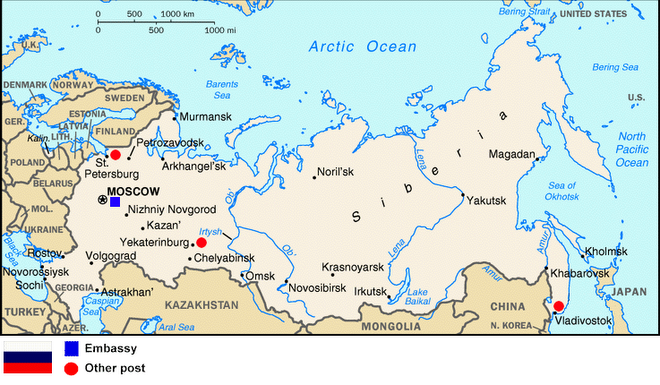I brain-dumped some ideas last night to a colleague who is our Mr EU:
Can Europe replace Russian oil and gas?
Unless it plans the become a region of candles and camp fires, no it cannot. ‘Renewable’ sources of energy are unlikely to replace more than 20-25% of the EU’s energy needs, on a twenty year view: and that’s optimistic. You can cover Europe in solar panels and wind farms, but that statistic is not going to change. Other sources (Kazakhstani, Qatari, Iranian) may reduce ‘dependence’ but they won’t reduce actual ‘flow’.
What Russia thinks about the EU
Well, for a start, what’s Europe?
Few Russians think of themselves as a part of Europe and, academically, don’t even acknowledge its geographic existence as a continent. Don’t believe me? Just ask different people from different parts of the world “how many continents are there?” In Russia, South America and Italy they will say six (Eurasia, North America, South America, Australasia, Antarctica and Africa); in the USA, Britain and, interestingly, in China they will say Seven (Europe, North America and South America, Australasia, Africa, Asia, and Antarctica). In Iran they will say five (one America, and no separate Europe): very Mesopotamian that.
[Of course some people get to six by forgetting Antarctica: they're just dumb].
For Russians ‘Europe’ is an historical conceit of the Western lands. Eurasia – which in terms of geography is the land we all live on – centres on Russia: physically and, oftentimes, politically. Understand that and you have a fair chance of understanding quite a bit about the Russian position.
So for many Russians, the European Union is the political and ideological wing of NATO; the old enemy and – seeing how keen the USA is to sprinkle new missile systems in Poland and Czech - still a potential threat. Also, no Russian can understand how any nation state can hive off their national sovereignty to Brussels, as a slave loses freedom to his master. Bluntly put, I am not sure the Russian State respects the states that sign up to the EU; doesn’t trust it as anything more than a talking shop behind which hides US militarism and also sees it as an attempt to weaken Russia.
So what’s the beef with the Energy Charter?
The Energy Charter & Why Russia won’t Sign
Just two weeks ago, during his visit to the United States, Russian Foreign Minister, Alexei Kudrin confirmed once again that Russia will not ratify the Energy Charter: “it has a whole series of defects” he said. What are these? For a start, resurgent, Putinista Russia, doesn’t accept that giving away Sovereignty over the management of its energy resources could ever be in its in its national interest.
Let’s be clear here: broken and broke, Yeltsin Kleptocracy Russia signed the Charter in 1994. But it has never since ratified it (signing a Charter is politics and can be fudged: ratification is Law and Russia, the land of signing-and-stamping stuff, appreciates the difference). Russia felt it had to sign for reasons of aid and trade. The Charter was drawn up in the early 1990s, when Russia was uniquely desperate.
Russia is no longer desperate. A point Jean Lemierre, the current President of the EBRD, made at a conference I recently attended, at the Royal Institute of International Affairs in London, on global political risk. Speaking on-the-record at Chatham House, he said (of the Production Sharing Agreements, or PSAs, signed between Yeltsin’s Government and Western oil firms in the 1990s): “A deal that is too good for one side, is no deal at all. It won’t last and one shouldn’t be surprised if Government later comes along and unmakes it, as they should, and in their people’s national interest”. Sometimes, it really takes a Frenchman to have that kind of clarity: "Crap deal? Let's rip it up then: sucks to be you!"
The Energy Charter is a good example of such a one-sided deal; drafted at a time of Russian national weakness.
Ratification of the Energy Treaty would allow Kazakhstan and Turkmenistan free access to Russia’s vast transnational gas pipeline and Russia doesn’t believe any country but it should control this vital strategic national asset. Also, Russia does not accept that it should immediately raise domestic gas prices to world market rates and thus plunge domestic business into chaos and its people into economic hardship.
Ratification would also prevent Russian companies, most notably Gazprom, from having full control over supply. The Ukraine and Belarus disputes in this area show the clear ‘disconnect’ Europeans have about Russia. For years the World Bank has said: raise your non-domestic CIS gas tariff to world market rates if you want to sort out your economy. That’s what Russia has done. Who can blame Russia if they briefly turned off the gas to countries unwilling to pay market prices, and at the same time stealing gas, blatantly, from the pipelines crossing their countries. Try suggesting to Britain that it should sell North Sea oil to Europe at a discount and, at the same time, ignore the fact that the French are illegally skimming off 10%, and see how far you get.
If Russia were to explain this clearly, and in terms like these, I think a lot more people would understand. It is disheartening that the Russian bureaucratic machine still fails to do this. Like the British Royal Family they adopt an approach of “never explain, never complain”; which didn’t do the Royal Family much good. And, actually, Russia complains a lot about the West misrepresenting Russia. Partly this is reasonable, but partly it is also because Russia doesn’t engage with the West, on an intellectual level, so it shouldn’t be surprised if unintelligent things are said about it.
EU investment into the Russian utility sector
If one sees Russia’s actions in the context of trying to gain back its economic freedom after feeling strong-armed into deals, in the 1990s, as the West exploited Russia’s weakness, then one can make three observations about the prognosis for EU firms' investment into the privatizing Russian utility sector right now; the firms being spun out of RAO UES. Now, RAO UES is right that Russia’s electricity infrastructure needs literally billions of Euros spent into replacing and expanding it; at least 10 billion Euros. But Russia doesn’t need foreigners for that:
- Russia is flush with cash to invest: just see how even the non-oil sector of the RTS and MICEX exchanges, in Moscow, have done
- There is no better definition of strategic industry than electricity, so “no”, foreigners won’t be allowed to buy up GenCos on the cheap, nor control distribution. They'll have to compete for minority stakes.
- And, as the Spanish Stock Exchange Commissions treatment of E.On Ruhrgas’s bid for Endesa, or the French consolidation of national gas assets between Compagnie de Suez and Gaz de France, has shown us: Europe talks free markets, but still sometimes practices national protectionism in energy: so the Russian State is unmoved at any negative comments on the fact that Gazprom looks likely to integrate, vertically, into power generation, distribution and supply. It is good business sense for Gazprom.
Prospects for the EU-Russia Summit
While Poland plays its juvenile game with Russia over meat exports – and holds up EU-Russia agreements – expect a very frosty Summit. Also, one hears President Putin doesn’t especially warm to Mr Barosso. I don't know if this true, of course, but if it is then, adopting the Cleopatra’s nose school of history, then I don't expect the EU to make any huge break-throughs at the Summit...
This reminds me: in Kyiv last week I heard Deputy Head of the Presidential Secretariat, Alexander Chaliy, give a rousing speech in defence of the Ukrainian political system. He was like the entertainment director on board the Titanic talking up Ukraine and spinning the situation President Yuschenko is in. Quite apart from the memorable feat of spin, I just loved his comment that "The European Union needs its own Perestroika and Ukraine shouldn't think about joining it. Ukraine should be like Norway: good relations with the EU but not a part of it. And like Switzerland: where Russians can invest offshore."
Now that's a more moderated message than I have heard from President Yushencko and, of course, one Russia would welcome (implying, as it does, Ukraine's "equal disengagement and equal co-operation" between Russia and the EU).
One closing thought on EU energy security. Don’t think in terms of Russia ‘cutting Europe off’. Of course it won't.
Think about where the new Russian reserves of oil and gas are (Siberia and the Russian Far East), think of the massive rising demand in China, South East Asia and Japan and think this: ‘in twenty years time can the higher-cost, lower productivity economies of the EU actually afford Russian oil and gas?’
And then think again as to why EU states are just desperate for Russia to ensnare herself in the Energy Charter.





No comments:
Post a Comment